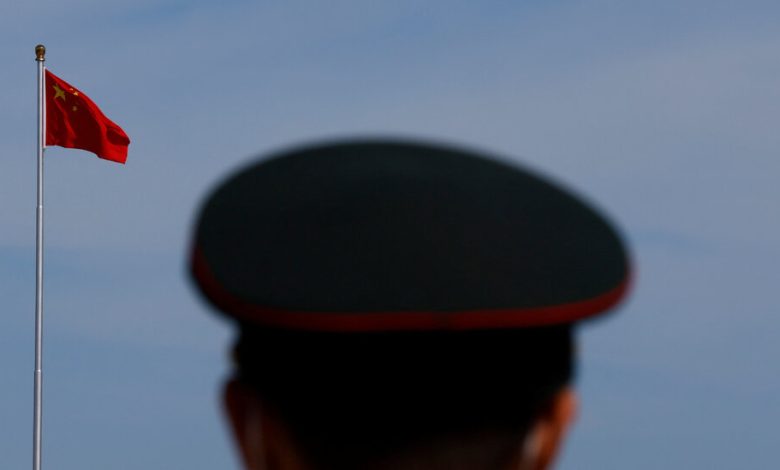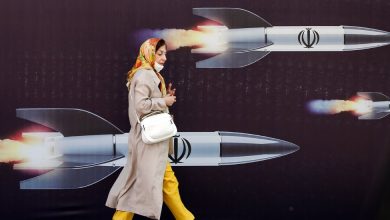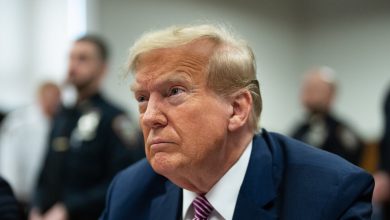Why We Should Fear China More Than Middle Eastern War

On Thursday, Joe Biden gave a speech linking the Israel-Hamas conflict and the Russian invasion of Ukraine and framing American involvement as part of a grand strategy to contain our enemies and rivals. “When terrorists don’t pay a price for their terror, when dictators don’t pay a price for their aggression,” he declared, “they keep going. And the cost and the threats to America and the world keep rising.”
Broadly speaking, Biden is correct; the United States has a strong interest in preventing rival powers from redrawing maps or undermining America’s democratic allies. But the difference between the president’s strategic analysis and the kind I’ve tried to offer recently is twofold: the general absence, in Biden’s words, of any acknowledgment of difficult trade-offs and the specific absence of any reference to China as a potentially more significant threat than Russia or Iran.
These absences are not particularly surprising. It’s normal for American presidents to say chest-pounding things like “There is nothing, nothing beyond our capacity” rather than to talk about possible limits on our strength. And since we don’t actually want to be at war with China, it makes a certain sense to avoid lumping Beijing in with Moscow and Tehran.
But presidential rhetoric and policy are inevitably linked, and the China threat that doesn’t exist in Biden’s speech barely exists in his funding request: The administration is asking Congress for over $60 billion for Ukraine, $14 billion for Israel and just $2 billion for the Indo-Pacific. Likewise, a president’s rhetoric lacunas inform political priorities, at least within his own coalition. If you can’t talk about why we need to worry about Chinese power alongside Russian or Iranian aggression, the people who listen to you may assume there’s nothing to worry about.
So let me explain why I worry about China and why I keep insisting that a strategy of containment in the Pacific should be a priority, even when other threats seem more immediate.
Start with the geopolitical background. It makes sense to talk about China, Iran and Russia as a loose alliance trying to undermine American power, but it is not a trio of equals. Only China is an arguable peer of the United States, only China’s technological and industrial might can hope to match our own, and only China has the capacity to project power globally as well as regionally.
Moreover, China offers a somewhat coherent ideological alternative to the liberal-democratic order. The Putin regime is a parody of Western democracy, and Iran’s mixture of theocracy and pseudodemocracy holds little broad appeal. But China’s one-party meritocracy can advertise itself — maybe less effectively since Xi Jinping’s consolidation of power but still with some degree of plausibility — as a successor to democratic capitalism, an alternative model for the developing world.
These general strategic realities obviously aren’t as threatening as actual aggression. But the threat China poses to Taiwan, in particular, has different implications for American power from the threat Russia poses to Ukraine or Hamas poses to Israel. Whatever happens in the Ukrainian conflict, America was never formally committed to Ukraine’s defense, and Russia cannot realistically defeat NATO. Whatever misery Iran and its proxies may inflict upon the Middle East, they are not going to conquer Israel or drive American power out of the Levant.
But America is more committed (with whatever public ambiguity) to the defense of Taiwan, and that expectation has always been in the background of our larger alliance system in East Asia. And while six experts may give six different opinions, there are good reasons to think that China is open to invading Taiwan in the near future and that America could join such a war and lose outright.
China hawks tend to argue that losing a war over Taiwan would be much worse than our post-9/11 debacles, worse than letting Vladimir Putin hold the Donbas and Crimea permanently. You cannot definitively prove this, but I think they’re right: The establishment of Chinese military pre-eminence in East Asia would be a unique geopolitical shock, with dire effects on the viability of America’s alliance systems, on the likelihood of regional wars and arms races and on our ability to maintain the global trading system that undergirds our prosperity at home.
And it’s at home where I fear the effects of such a defeat the most. America has experience losing wars of empire — in Vietnam and Afghanistan, for example, where we were extending ourselves without putting our full might into the fray. But we have no experience being defeated in straightforward combat, not guerrilla war, by a great-power rival and ideological competitor.
Whatever anxieties you have about our current political divisions, whether you fear left-wing disillusionment with America or right-wing disillusionment with democracy or both, such a defeat seems more likely than anything to accelerate us toward a real internal crisis. Which is why, even with other foreign crises burning hot, a debacle in East Asia remains the scenario that the United States should be working most intensely to avert.
The Times is committed to publishing a diversity of letters to the editor. We’d like to hear what you think about this or any of our articles. Here are some tips. And here’s our email: [email protected].
Follow The New York Times Opinion section on Facebook, Twitter (@NYTOpinion) and Instagram.




